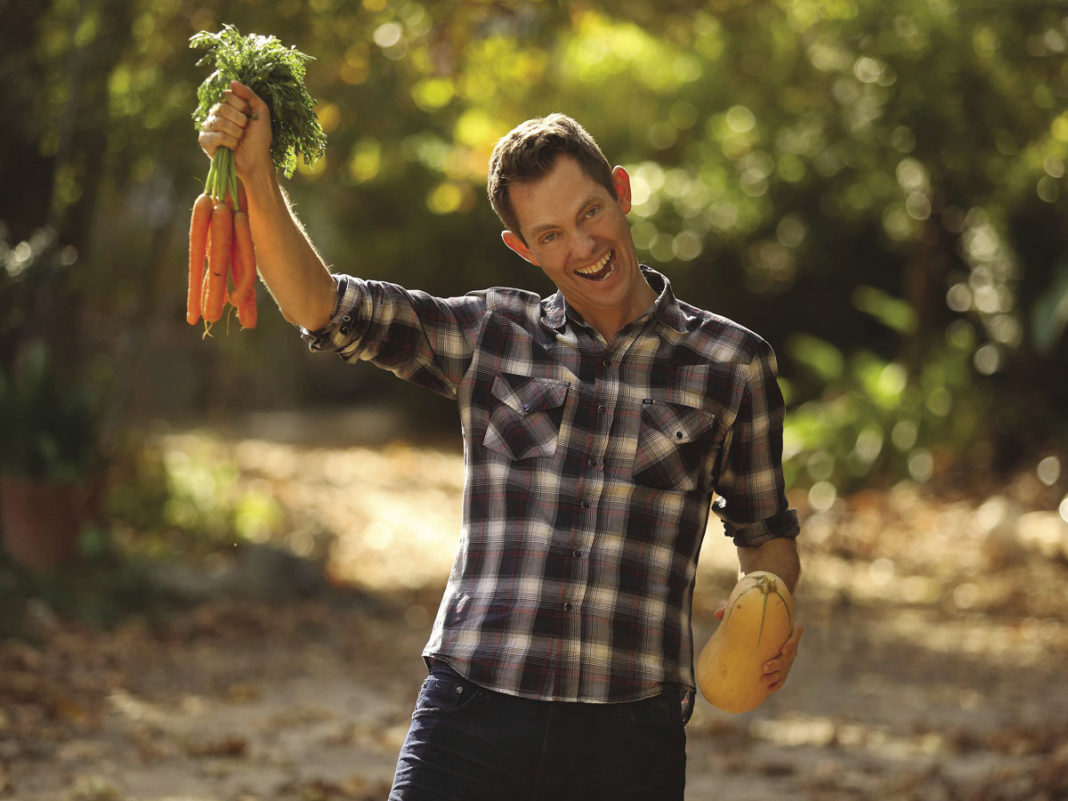If there’s one common problem that every inhabitant of the Earth is currently facing, it’s climate change. Those two words sound innocent enough: “climate change.” But what’s happening isn’t just climate change, it’s climate chaos. And as crazy as things have gotten, unless we change course, we are barely seeing the tip of the iceberg of what’s coming.
Unprecedented heat waves in unlikely places, unprecedented flooding, droughts and wildfires; the first rainfall on the peak of Greenland’s ice sheet for the first time in literally ever — and a truly alarming new scientific report on the now-unavoidable impact of global warming on our world, we can’t keep acting as if this isn’t an urgent matter of life or death.
The problem can seem so daunting, and our individual power can feel so limited. Most of us don’t want to stop driving our cars, heating our homes, or buying the manufactured goods that keep us alive and comfortable. The good news is, we all share one thing that can have a significant impact on climate change: the food we eat.
By making small adjustments to your daily food choices, you can help counteract the biggest environmental threats we’re facing today. It’s not the whole story, but you can take a real bite out of the problem. Earth’s temperature has risen about one degree Celsius since the mid to late 19th Century and scientists estimate that over the next 20 years, the global temperature is expected to reach or exceed 1.5 C of warming. What’s causing this rise in temperature?
Well, we are. According to a new United Nations-commissioned scientific report by the Intergovernmental Panel on Climate Change (IPCC), we’ve lost the chance to reverse some of the effects of climate change, such as rising sea levels, in our lifetime. Unless there are immediate, rapid and large-scale reductions in greenhouse gas emissions, reaching that 1.5 C target will be beyond reach.
“This report is a reality check,” says IPCC Working Group I co-chair Valérie Masson-Delmotte. “We now have a much clearer picture of the past, present and future climate, which is essential for understanding where we are headed, what can be done, and how we can prepare.” The report shares “unequivocal” evidence that, as most scientists have been arguing for years, human activities are the biggest driver of our warming atmosphere. But what can we do?
A report from the World Resources Institute says that shifting from a standard, animal-centric diet is one of the best places to start. Even changing just 30 per cent of your food from animal products to plant-based foods would lead to meaningful improvements. In 2018, the journal Science published the largest study to date on the environmental impact of food. It was an enormous and thorough study. Researchers looked at data collected from 38,700 farms from 119 countries and studied the 40 food products that represent approximately 90 per cent of everything we eat.
The authors concluded that livestock provides only 18 per cent of the food calories eaten by humans, and 37 per cent of the protein, yet it uses over 77 per cent of global farmland. Meanwhile, livestock is also responsible for 57 per cent of water pollution, 56 per cent of air pollution, and uses a third of the world’s fresh water.
By now, you’re probably wondering — exactly which foods contribute most to climate change? Where can you start if you want to shift your diet to help prevent global collapse? A 2011 analysis by the Environmental Working Group looked at the carbon footprint of various foods. In other words, how much do different foods contribute to the greenhouse gas effect? Their report shows how many kilograms of carbon dioxide is emitted per kilogram of each food consumed.
The worst offenders included beef, of course, and also lamb, cheese, pork, farmed salmon, turkey, chicken, canned tuna, and eggs. When I face the enormity of climate change, sometimes the problem can feel so large that I’m tempted to think that I don’t matter all that much. Sometimes, I feel not so much like a drop in the bucket, as a drop in the sea. Then I remember the words of Mahatma Gandhi, who famously said, “Whatever you do in life will be insignificant but it is very important that you do it because you can’t know.”
And when I look at how food and climate change are related, I start to think that maybe our choices aren’t really all that insignificant after all. Because when it comes to what you and I eat, we have real power. And it just so happens that the same food choices that contribute to a healthier climate can also help contribute to longer and healthier lives. So whether you go 100 per cent plant-based or adopt a meat-free Monday; and whether you support organic or regenerative agriculture some of the time or all of the time… there are steps you can take.
Every step, and every bite counts — for you, and for the planet, too.
Top 10 Emission-Producing Foods
(Greenhouse Gas Emissions per kilogram of food products. Measured in kilograms of carbon dioxide equivalents per kilogram of food product.)
- Beef (beef herd): 99.48 kg
- Lamb and mutton: 39.72 kg
- Beef (Dairy herd): 33.3 kg
- Prawns (farmed): 26.87 kg
- Cheese: 23.88 kg
- Fish (farmed): 13.63 kg
- Pig meat: 12.31 kg
- Poultry meat: 9.87 kg
- Eggs: 4.67 kg
- Rice: 4.45 kg

Read This Story in Our 30th Anniversary Digital Edition
Celebrate 30 years of Canada’s best health and fitness publication!
Explore future trends in health, fitness and food in this special 30th anniversary edition. Find our favourite tech and kitchen must-haves, then work out with two of IMPACT Magazine’s Canada’s Top Fitness Trainers before making one of our delicious plant-based recipes – all inside this issue!
















